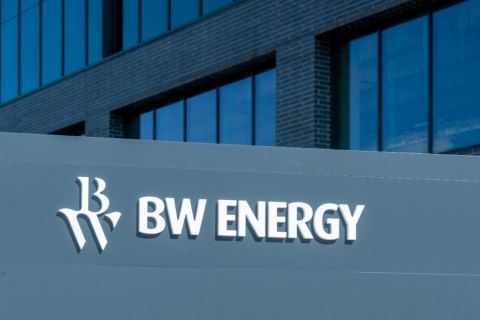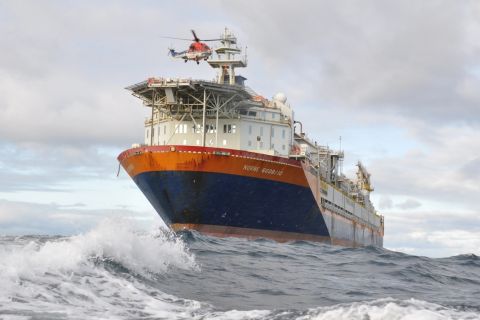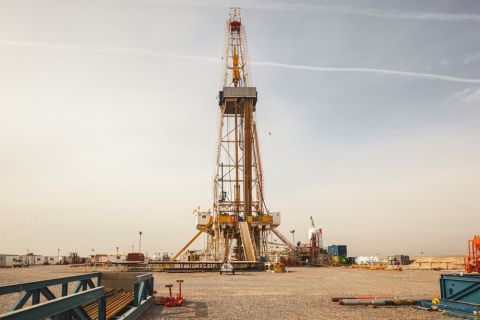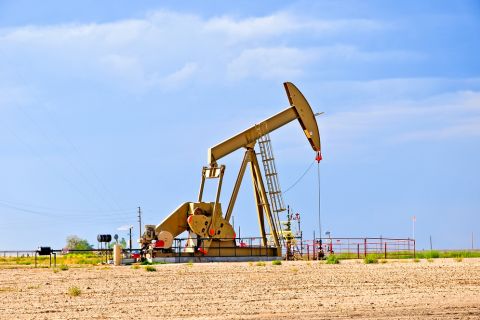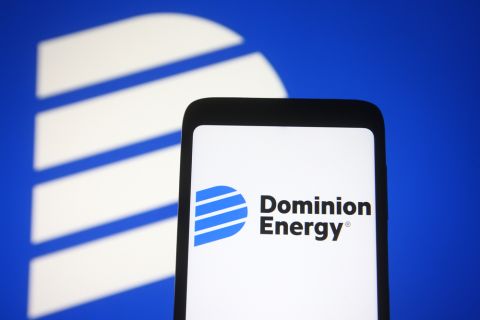
Toby Rice, CEO of EQT Corp., with Nissa Darbonne, Hart Energy's executive editor-at-large, at the DUG Appalachia Conference in Pittsburgh on Nov. 30. (Source: Hart Energy)
Around the world, the measurements of a successful energy transition are ticking backward: global emissions are skyrocketing, energy security is shrinking and more people are living in energy poverty.
Toby Rice, CEO of EQT Corp., said he has a simple, proven and effective solution.
“Our energy transition plan is to transition the world from coal to gas and transition gas to a zero carbon energy solution and unleash U.S. LNG,” Rice said at Hart Energy’s DUG Appalachia Conference in Pittsburgh on Nov. 30.
“LNG is the vehicle that will allow us to transition the world from coal to gas.”
Carbon capture and hydrogen will be the vehicles that allow the transformation from natural gas to net-zero carbon solutions, he added.
“We believe we can do this without sacrificing energy security, keeping energy affordable and reliable, and the end result will be a pretty significant impact on the emissions front as well.”
But obstacles remain blocking the way forward.
Rice said that last year was the first in the last three decades in which fewer pipelines were built in the U.S.
Gas demand increased 56% since 2010, Rice said. But pipeline capacity hasn’t kept pace, ticking up 25% while storage infrastructure has grown about 10%
The U.S. has met demand through excess midstream capacity that was built during previous generations.
“Well that can only last for so long, and unfortunately, we're now at a point where our pipeline capacity is maxed out,” he said. “This means we're going to be in a very volatile period.”
Geopolitical events, cyber-threats and capacity concerns are clear and present dangers to the industry’s ability to meet demand, he said. The industry no longer has the necessary flexibility to manage a potential crisis.
‘Train wreck’ coming
A catastrophic event on the horizon wouldn’t occur because natural gas lacks reliability, Rice said. Rather, policymakers have not focused on the dependability of the power grid. The nation has been here before. Many energy policies to address the grid were the results of 1970s freezes in the Northeast that made it necessary to close hospitals and schools that were “literally freezing,” he said.
“The lack of energy education in this country is one of our biggest challenges,” Rice said. “It's also one of our biggest opportunities because when people learn more about our industry, they're going realize everything we do is heavily scrutinized and [is] the best way to produce energy.”
The story is simple, he said. The push against fossil fuels has been easy because no one in the U.S. has seen the impact of blocking pipelines and shutting down reliable coal facilities. But the impact is coming; it was also preventable, he said.
“When this train wreck hits it, I think that people are going to wake up and they're going to get back to reality and we're going to get back to work doing practical things,” Rice said.
But there will also be finger-pointing at the industry, and now is the time to let people know this is a “very dangerous game” that can be prevented.
“We have the resources, the ability and the drive to be a real solution provider here and address any problems,” he said. “You'd think after Europe, people would really wake up,” Rice said, referring to gas shipments being cut by Russia following its invasion of Ukraine.
The shale revolution has allowed the U.S. to evolve from coal to natural gas. Doubling down on natural gas is a proven and cost-effective way to lower emissions, Rice said.
Instead, leadership in states like Michigan are betting on 100% renewable power by 2040.
Such states could get lucky, or “They'll find out really quickly that it's, it's a really bad plan,” he said.
People are blocking development in the U.S. and paying more to import power. Plans like the one in Michigan perpetuate the problem.
“It doesn't make sense,” Rice said. “It's just a sign of the root cause of this whole thing. Political force has overridden market forces.”
Recommended Reading
E&P BW Energy Undergoes ‘Technical’ Ownership Restructuring
2024-05-08 - The restructuring will not involve any change to the ultimate control of BW Energy as the shares currently held by BW Group will be sold to BW Energy Holdings.
Vår Selling Norne Assets to DNO
2024-05-08 - In exchange for Vår’s producing assets in the Norwegian Sea, DNO is paying $51 million and transferring to Vår its 22.6% interest in the Ringhorne East unit in the North Sea.
Crescent Energy: Bigger Uinta Frac Now Making 60% More Boe
2024-05-08 - Crescent Energy also reported companywide growth in D&C speeds, while well costs have declined 10%.
Evolution Petroleum Sees Production Uplift from SCOOP/STACK Deals
2024-05-07 - Evolution Petroleum said the company added 300 gross undeveloped locations and more than a dozen DUCs.
Renewable Energy Producers Prep for More Demand from Big Tech
2024-05-07 - Dominion Energy expects to connect 15 more data centers this year.

